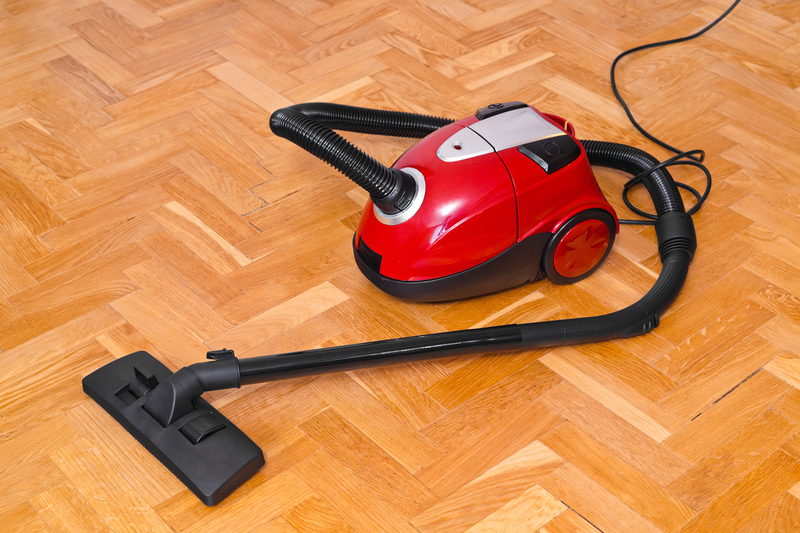Jewellery Cleaning Secrets for a Lasting Shine
Posted on 21/08/2025
Jewellery Cleaning Secrets for a Lasting Shine
Jewellery is more than an accessory; it's an investment, a memory, and an expression of personal style. But how do you keep your cherished pieces sparkling like new? Discover the ultimate guide packed with jewellery cleaning tips, maintenance hacks, and insider secrets to ensure your gems and metals dazzle for years to come.

Why Regular Jewellery Cleaning Matters
Over time, jewelry loses its shine due to exposure to skin oils, lotions, household chemicals, and environmental factors. Regular jewellery cleaning not only preserves its aesthetic brilliance but also prevents long-term damage caused by dirt accumulation, discoloration, and tarnishing. With just a bit of know-how, you can reclaim that showroom sparkle right at home!
Common Culprits Behind Dull and Dirty Jewellery
- Body oils and sweat
- Cosmetics and perfumes
- Lotion and soaps
- Dust and household chemicals
- Airborne particles and pollution
Knowing what causes your precious items to lose their luster is the first step towards efficient jewellery maintenance.
Essential Jewellery Cleaning Techniques
1. Gentle At-Home Cleaning for Everyday Jewellery
Simple soap and water solution works wonders for most gold and silver pieces:
- Mix a few drops of mild dish soap with warm (not hot!) water.
- Soak your jewellery for 15-20 minutes.
- Gently scrub with a soft-bristled toothbrush or a dedicated jewellery brush.
- Rinse thoroughly with clean water, and dry with a lint-free cloth.
This easy jewellery cleaning method is suitable for rings, necklaces, earrings, and bracelets that do not contain porous gemstones like pearls or opals.
2. Deep Cleaning Techniques for Heirlooms and Intricate Pieces
- Ultrasonic Cleaners: These devices use ultrasonic waves and a cleaning solution to dislodge grime from hard-to-reach crevices. Use ultrasonic jewellery cleaning cautiously--some stones may crack or chip!
- Professional Services: Complex, vintage, or high-value pieces benefit from periodic professional cleaning and inspection.
Tip: Avoid DIY ultrasonic cleaning if your jewellery contains emeralds, pearls, opals, or delicate vintage stones.
3. Specialized Cleaning for Gemstone Jewellery
Differentiating by gem type ensures lasting brilliance and avoids accidental damage:
- Diamonds: Clean easily with soap, water, and a toothbrush. For diamond jewellery shine, soak regularly and buff dry.
- Rubies & Sapphires: Similar methods as diamonds, but avoid bleach or harsh cleaners.
- Pearls: Wipe gently with a damp, soft cloth. Do not soak! Clean only when necessary to preserve their nacre.
- Emeralds, Opals & Turquoise: Needs special care. Clean with a dry, soft cloth only. Keep away from heat and chemicals.
DIY Jewellery Cleaning Hacks for Maximum Shine
1. Baking Soda Paste for Tarnished Silver
- Mix 2 parts baking soda and 1 part water into a thick paste.
- Gently rub onto your silver pieces with a soft cloth.
- Rinse well and buff dry for a silver jewellery shine.
2. Vinegar and Baking Soda Soak
- Place jewelry in a cup and cover with white vinegar.
- Sprinkle in a spoon of baking soda.
- Let it fizz and soak for 5-10 minutes, then scrub and rinse.
3. Aluminum Foil and Baking Soda "Magic" Bath
- Line a bowl with aluminum foil (shine side up).
- Add hot water, baking soda, and salt (equal parts of each--about a tablespoon).
- Place jewelry in the mixture for a few minutes and watch as tarnish disappears. Rinse thoroughly.
Never use these methods for soft or porous gemstones!
The Best Commercial Jewellery Cleaners
- Liquid jewellery cleaners: Look for ammonia-free formulas for diamonds, gold, and platinum.
- Polishing cloths: Specially treated cloths safely remove tarnish from gold and silver.
- Jewellery wipes: Convenient for travel and touch-ups, but not a replacement for deeper cleaning.
Pro Tip: Always read labels and instructions before applying any commercial cleaner, especially on pieces containing multiple gem types or enamel.
How to Properly Store Your Jewellery for Lasting Shine
Minimize Tarnish and Damage
- Store each piece separately in a soft pouch or lined jewellery box.
- For silver, use anti-tarnish strips or cloth bags.
- Never store in the bathroom: Humidity accelerates tarnish!
- Keep necklaces hung to prevent tangling.
- Avoid direct sunlight and heat, which can dull gemstones.
Avoid the Main Storage Mistakes
- Don't toss jewellery into a pile--abrasion causes scratches.
- Don't wrap in paper towels or tissues--fibers can snag or hold onto moisture.
- Avoid plastic bags for certain gems: Some release gases that speed up tarnish.
Jewellery Care Tips for Everyday Sparkle
- Take off jewellery when washing hands, showering, swimming, or using cleaning products.
- Put on jewelry after applying perfumes, lotions, or hairsprays to minimize exposure to chemicals.
- Sterling silver tarnishes faster if exposed to rubber, so keep it away from rubber bands and gloves.
- Have prong-set stones professionally checked every 6-12 months to prevent loss.
- Rotate your pieces--don't wear the same item every day to reduce wear and tear.
Signs Your Jewellery Needs Professional Cleaning or Repair
- Persistent dullness even after cleaning
- Loose stones, clasps, or links
- Visible cracks or deep scratches
- Discoloration that does not respond to at-home methods
- Unusual smells (may indicate underlying corrosion or decay)
If you notice any of these issues, it's time to trust a reputable jeweler with your treasures. Expert jewellery cleaning not only restores aesthetic brilliance but ensures the longevity and safety of your prized possessions.
Secret Ingredients for Safe and Brilliant Results
Natural Ingredients for Chemical-Free Shine
- Baking soda: Great for gentle abrasion and stain removal
- White vinegar: Dissolves mineral deposits and mild tarnish (not for use on pearls or opals)
- Lemon juice: Excellent for brightening gold, but use sparingly--its acidity can damage some stones.
- Witch hazel and aloe vera: Mild cleaners for delicate jewelry types
Remember: Always test new ingredients on a small, inconspicuous area before cleaning your entire piece.

Frequently Asked Questions About Jewellery Cleaning
How often should I clean my jewellery?
For items worn daily, clean them every couple of weeks. For occasional pieces, monthly cleaning is sufficient. Remember to polish gold and silver periodically for a lasting jewellery shine.
Can I use toothpaste to clean jewellery?
While toothpaste is a well-known hack, it's abrasive and can scratch soft metals and gemstones. Instead, use baking soda paste or commercial cleaners formulated for your specific jewellery type.
What's the best way to clean gold jewellery?
Use a mild soap and water bath, then buff with a soft microfiber cloth. Avoid harsh cleaners, which can erode gold alloys.
How do I remove tarnish from silver jewellery?
Try the baking soda and aluminum foil method, or use a specialized silver polishing cloth. Regular cleaning prevents tarnish build-up.
Is ultrasonic cleaning safe for all jewellery?
No--ultrasonic cleaners can damage soft, porous, or treated stones (like opals and emeralds). Always check your jewellery care guide or consult your jeweler before using these devices.
Conclusion: Your Sparkling Jewellery Awaits
Achieving a radiant, lasting shine isn't just about beauty--it's about protection, value, and pride in your collection. By following these expert jewellery cleaning secrets, you can preserve the elegance and vibrancy of your treasured items for generations. Whether you're handling daily-wear diamond studs or rare vintage heirlooms, the right techniques bring out the best in every piece.
Remember:
- Clean regularly
- Store smartly
- Avoid chemicals and abrasives
- Seek professional help for delicate or complex pieces
For more jewellery care guides, maintenance tips, and product recommendations, bookmark this page and shine bright every day!




